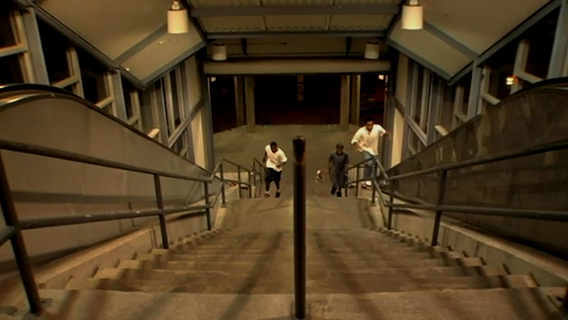 Bill & Turner Ross' Tchoupitoulas chronicles the lives of three adolescent brothers as they venture through New Orleans, encountering an eclectic group of individuals in this vibrant city. Tchoupitoulas isn't a conventional documentary by any means, throwing away narrative cohesiveness in an attempt to immerse the viewer in its characters and setting. Tchoupitoulas is a beautiful, vibrant experience, mimicking the city of New Orleans itself, in delivering a rather impressive portrait of a city through the eyes of a child. Through the wide-eyed wonder of the youngest of the three brothers, Tchoupitoulas presents this boy's experience as a quasi- "right of passage", as he experiences cultures and individuals that are not quite like anything he has seen before. The film captures curiosity in such a genuine , showing these boys interacting with others in a way that almost feels like they are growing up in front of our eyes. The filmmakers affection for its subjects, both the trio of brothers and city itself, is very apparent throughout Tchoupitoulas, as they capture this vibrant city and the exuberance and curiosity of youth. While I believe that Tchoupitoulas does run a little long, even at 80 minutes, there is no denying that the filmmakers have effectively created a film that delivers a fresh and genuine slice of life, perfectly capturing a unique time and place.
0 Comments
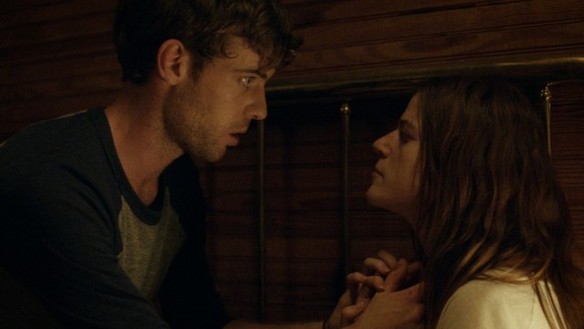 Recently married, Paul and Bea are madly in love. For their honeymoon, the couple travels to a remote lake community from Bea's childhoood, intent on having a quiet an private romantic getaway. Soon after their arrival, Paul wakes up in the middle of the night to find Bea not by his side. He goes out looking for her, finding her wandering in the woods, disoriented and alone in the middle of the night. After this strange occurrence, Bea becomes increasingly peculiar and distant, leading Paul to suspect something diabolical took place in the woods. Leigh Janiak's Honeymoon is an intelligent horror film that effectively plays off of new wed anxiety to create a thrilling and unpredictable experience. With much of the film revolving around Bea acting strange, nearly un-human in her actions, Honeymoon creates a portrait of a deeply in love man who is forced to question whether his wife is who he fell in love with. Delivering a healthy does of paranoia, Honeymoon is more about the enigmatic build-up to the conclusion, keeping the viewer almost completely in the dark. The affliction that Bea is suffering from is kept very close to the chest, with the filmmaker understanding the power and importance of the unknown in crafting a thiller/horror film. Unfortunately, this will lead the ending to feel like a bit of a letdown to some, but it's intense and unnerving none-the-less. With well-defined characters and a lean, enigmatic narrative, Honeymoon is the latest micro-budget spookfest worth your time. 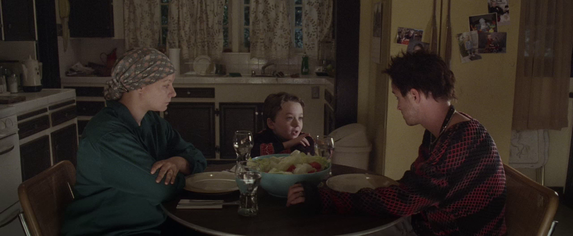 Steven Bernstein's Decoding Annie Parker is a drama based on the true story of two remarkable woman, Annie Parker, a three-time cancer survivor whose family has a long history of cancer, and geneticist, Mary-Claire King, whose research and subsequent discovery of the breast cancer gene is wildly considered one of the most important advancements in cancer research ever. Constructed in this sorta duel-narrative, Decoding Annie Parker chronicles these two woman for decades, one suffering from cancer, the other striving to prove the hereditary implications of cancer, as their lives eventually intersect towards the end of the film. The way Decoding Annie Parker's script navigates between both geneticist Mary-Claire King and Annie Parker's personal stories is well-constructed, presenting a story that feels both grandiose in its depiction of the scope of people affected by this horrible disease, and deeply personal in the way it portrays Annie's story. While the film unfolds in a rather conventional way for a docu-drama film, Samantha Morton's nuanced and complicated performance is what sets this film apart, elevating it as much as any actor could hope to achieve. She brings an incredibly amount of strength and fragility to the character, capturing a woman who lives in fear of Cancer, eventually finding the power to survive. Steven Bernstein's Decoding Annie Parker is a powerful yet uneven film that is an ode to all woman suffering from cancer, succeeding more than it fails due its strong central performance. 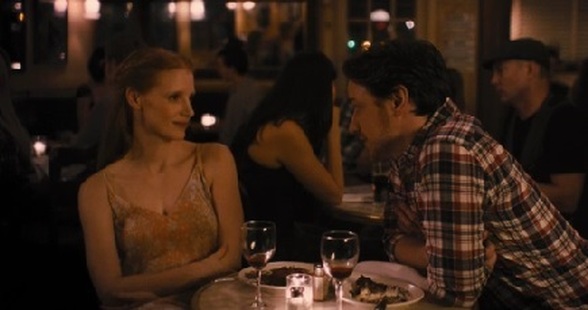 Conor and Eleanor are two young people, maddily in love with each other. Happily married, Conor and Eleanor suddenly find themselves to be complete strangers, trying to understand each other in the wake of a terriible tragedy. Ned Benson's The Disappearance of Eleanor Rigby is a film of beautiful moments that never quite manages to come together as a cohesive whole. With two great performances in James McAvoy and Jessica Chastain, The Disappearance of Eleanor Rigby is sprinkled with impressive moments of emotional resonance, as these two actors do such a great job at giving the film an emotionally resonant core. What's missing from this film is beyond the great performances, The Disappearance of Eleanor Rigby never really attempts to understand these characters on an intricate level, never penetrating deep enough into their psyches to understand them on the most primal level. This leaves the film feeling a bit like a bunch of vignettes, showing them suffer and yearn for each other but never actually attempt to understand teir "inner lives". It simply never feels like a cohesive narrative, which isn't exactly a bad thing, but I wish I felt for/understanded these characters more. Ned Benson's The Disappearance of Eleanor Rigby is a hard film to dislike given its great central performances but overall it wants to be an ode to love found and lost, never going deep enough to fully achieve these intentions. 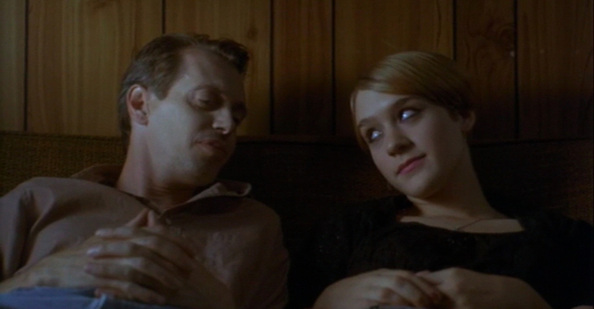 Tommy, a 30-something auto mechanic, recently lost his job after "borrowing" $1500 from the companies cash register and gambling it all away in Atlantic City. Tommy is a screw-up, a mechanic who can't keep his own car running. With no real job prospects, Tommy spends most of his time at the Trees Lounge, a small dive bar located right below his apartment. After the death of a family member creates a job opening as an ice cream truck driver, Tommy reluctantly takes the job, simultaneously forming a friendship with his ex-girlfriend's niece, Debbie, who happens to be 17 years old. Steve Buscemi's Tree Lounge is well-written dramedy about an alcoholic and the cast of characters which frequent the Trees Lounge. This is a low-key character study about a man who constantly seems to make poor decisions, struggling to figure out life. Trees Lounge is not a film at all interested in forming an opinion about Tommy - it never demonizes him nor shows sentimentalism for his plight, it simply is a portrait of a man who just can't seem to figure things out. Tommy isn't a bad guy, just a man struggling to find purpose, who uses the bottle to fill the void. As the film progresses, the narrative slowly reveals the type of character Tommy truly has, hiding beneath his irresponsible demeanor. Steve Buscemi's Trees Lounge intentions are nothing grandoise, but it provides a pensively detailed portrait of the lifestyle of a barfly with great, intimate observations throughout. 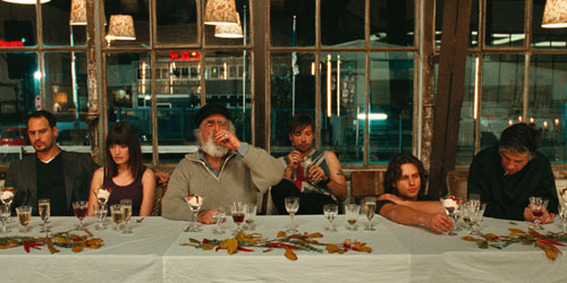 Fatih Akin is better known for his drama films Head-On and The Edge of Heaven, but with Soul Kitchen he delivers a delightfully charming comedy that further captures Akin's abilities as a filmmaker. Soul Kitchen centers around Zino, a likable restaurant owner, who is disorganized and hopeless, struggling to save his floundering restaurant from going under. When his girlfriend Nadin decides to leave him, Zino follows in pursuit, leaving his restaurant in the hands of his unreliable brother Illias. Zino's decision to leave in pursuit of Nadin turns out to be a disaster, as he finds Nadin with another man, only to return home and discover that Illas has gambled away the restaurant. Fatih Akin's Soul Kitchen is an alluring film with a great cast of characters including the lovable main protagonist and his perfectionist chef that shows much disdain for his customers. Like most great comedies, the film does a great job at balancing its more eccentric comedic elements with its dramatic elements, blending them together in a truly enjoyable fashion. Using this perfectionist chef character, Soul Kitchen does manage to comment on personal vs. social aspects of Art, with the chef struggling death with his uncouth clientele. All in all, Soul Kitchen is a light-hearted whimsical story that is far different than anything else Akins has made. 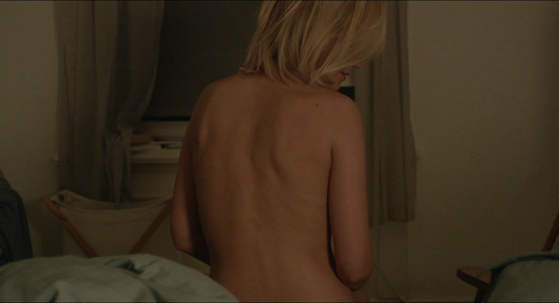 Due to a horrific accident, Ingrid has recently lost her ability to see. Adjusting to a life without vision, Ingrid takes solance in the safety of her home, a place where she feels in control. Living with her husband, an architect, Ingrid rejects his encouragement to leave the apartment, leading Ingrid alone with her deepest fears and repressed thoughts. Given Eskil Vogt's previous work as a writer on Joachim Trier's Reprise and Oslo, August 31st, I had high expectations for Blind, but what Vogt has delivered has easily surpassed those expectations. Blind is a brilliantly creative narrative that encapsulates Ingrid's psyche, exploring the mental trauma associated with going blind. Blind is a film that deserves to be praised for its innovative storytelling, going out of the way to subvert general expectations the audience has come to suspect. I'd rather not go into details about the narrative, but the way Vogt is able to slowly peel back the layers of this narrative, exposing the viewr to the true nature of the story as the film progresses is a truly impressive storytelling feat. While Blind is very much a meditative study of a woman who suffers from Blindness, it never screams for attention or empathy, being more interested in exploring the psyche of this woman. Never feeling sentimental in the slightest, Vogt paints an intimate portrait of a woman alone with her own thoughts, capturing the uncertainty and self-doubt about her self-worth that begins to tarnish the relationship she has with her husband. For a first time filmmaker, Vogt seems to have picked up a thing or two from Joachim Trier, with Blind being a well-photgraphed film that effectively transports the viewer into the mindset of this woman, capturing how the smallest details, like navigating around her own home, can be taxing. Vogt's Blind is a very impressive debut feature that proves Vogt maybe just as talented behind the camera as he is as a writer. 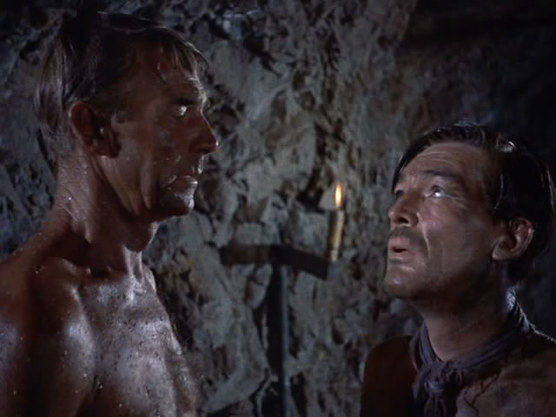 On his latest gold and silver shipment from Carson City to Virginia City, Banker William Sharon is hi-jacked by a group of outlaws known as "The Champagne Bandits", who've gotten their name by treating the passengers of any robbery to a picnic dinner with Champagne after robbing them. Desperate to protect his wealth, William Sharon decides that the only way to protect himself is by building a railroad, which will require a tremendously skilled engineer, given the area's dense, mountainous terrain. Enter Jeff Kincaid, an engineer specializing in the most difficult of jobs, who agrees to help due to being a former resident of Carson City. Kincaid's new project draws the attention of a band of outlaws who plan to plunder Carson City's new railroad, leading Kincaid to not only deal with the outlaws but the local hostility towards the project, who fear the criminal element which the railroad will bring. Andre De Toth's Carson City is a middle-of-the-road western with a formulaic plot which holds it back from being something truly worthy of note. Starring Randolph Scott, Carson City is engaging enough simply because of his presence, being a man stuck in-between the outlaws who wish to rob the railroad and the civilians who distrust what technology will bring. Perhaps the most interesting aspect of Carson City is how it portrays the effect technology has on a community. Andre De Toth captures how society as a whole is fearful of something they don't understand, with the people of Carson City terrified of the railroad disrupting their lives. In exploring these ideas, De Toth creates a film that plays like an ode to engineers and forward-thinkers, capturing the importance of creativity and innovation even in an industry known for precision and arithmetic. Featuring an impressive climax and visually pleasing aesthetic, Andre De Toth Carson City is an average western that is elevated by the craft involved. 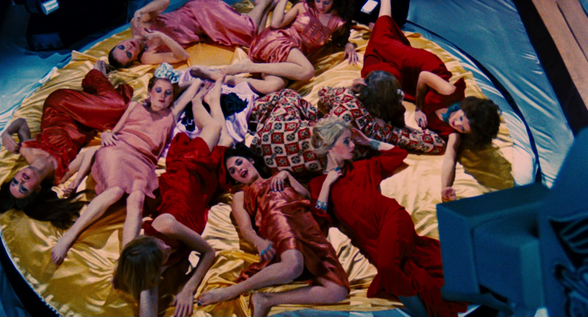 Music Tycoon Swan has been at the top of the music world for nearly 20 years, having sold his soul to the devil for eternal success and youth. His latest scheme revolves around stealing music from a young, meek composer Winslow Leach, whose completely naive to how the music industry works. Swan plans on using Winslow's music for the opening of his new venue, The Paradise, the largest rock venue of its kind. When Winslow discovers Swan's plan he tries to stop him but suffers an accident in the process, horribly disfiguring him. Taking refutre in the Paradise, Winslow becomes the venue's Phantom, planning revenge on Swan for his deception. Brian De Palma's Phantom of the Paradise is a stylized rock opera that is most likely not quite like anything you've seen before. The film is silly and a lot of fun but it's also a seething commentary on the music business, exposing the deception of minimal talent required. Phantom of the Paradise never falls victim to taking itself too seriously, opting for a very silly, over-the-top tone that works both as a comedy and a commentary. The narrative by itself isn't all that interesting but I don't think De Palma intedned it to be, using a mixture of Faust and Phantom of the Opera as a framework to tell this hilarious and quirky story. Even though Phantom of The Paradise is not like anything else De Palma has done his style is very prevalent, given its use of split screens, point-of-view shots and other signature De Palma stylistic decisions. Brian De Palma's Phantom of the Paradise is off-beat, strange, and silly as hell, making it completely understandably as to why it has become such a cult classic. 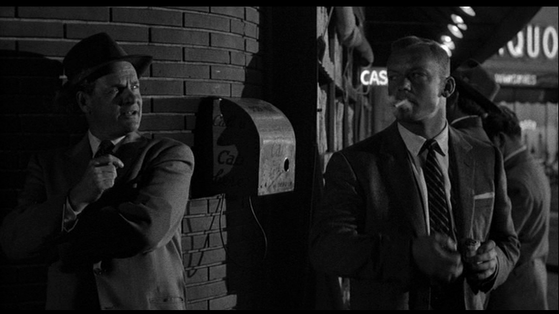 James and his friend, Edward, are on a leisurely camping trip in Wyoming when they witness a car crash. The two men rush to the aid of John and Red, who turn out to be escaped bank robbers, who've stolen $350,000 in cash. John and Red don't plan on keeping any witnesses, shooting Edward dead but James survives by complete accident, being knocked unconscious instead of fatally shot. James awakens to discover the stolen money was accidentily left behind. Fearing the gunmen will soon return, he runs off into the wilderness, losing the bag of money in a blizzard. James arrives in a small town only to discover that he is the prime suspect in his friends murder, forcing him to change his name and live on the run, constantly being pursued by the police and bank robbers alike. Jacques Tourneur's Nightfall is a well-crfated noir that is impressively well-paced, offering enough mystery and intrigue to keep it gripping from start to finish. A narrative that could certainly be described as a B-movie concept, Nightfall uses its likeable ex-veteran James, played perfectly by Aldo Ray, to create a gripping portrait of an everyday man caught in a situation that is way over his head. James is a sympathetic character, a man whose all alone due to terrible circumstances. He is very likeable, and yet the story doesn't make that clear at first, never tipping its hat too early as to what obstacles its main protagonist is facing. Being directed by Jacques Tourneur, Nightfall is a supremely well-shot film that juxtaposes its pulpy storyling with beautiful composions. Nightfall is a slick, underappreciated noir that features a sympathetic everyday man and enough hardboiled oneliners to make any fan of the genre more than happy. |
AuthorLove of all things cinema brought me here. Archives
June 2023
|
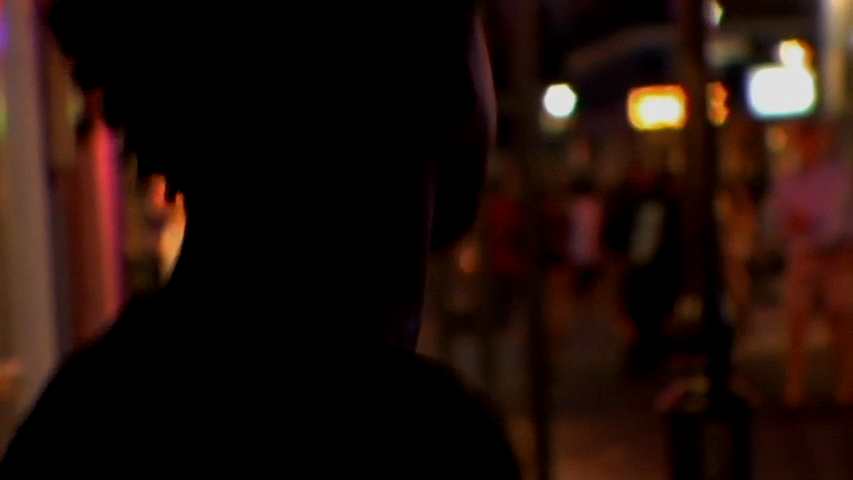
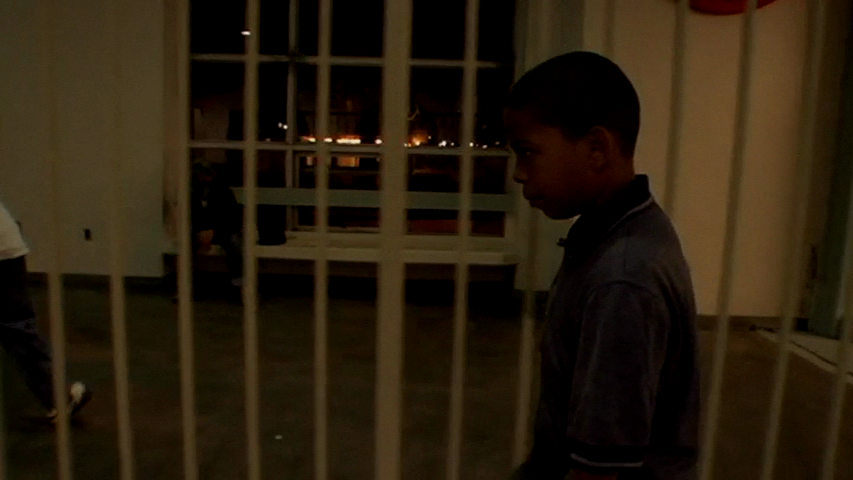
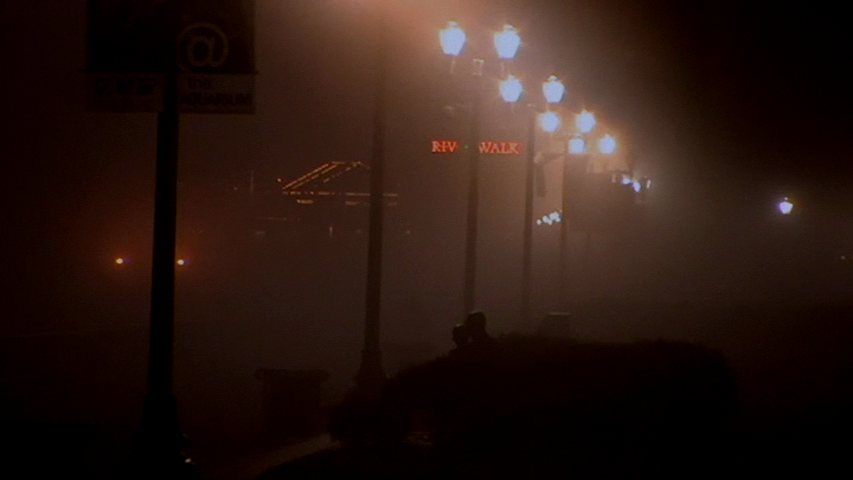
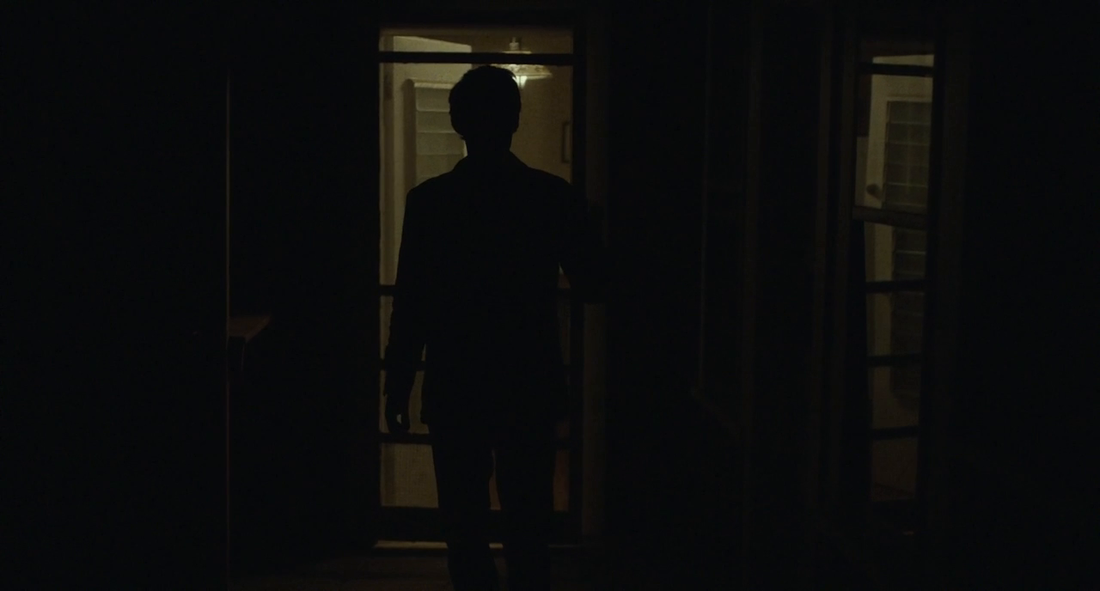
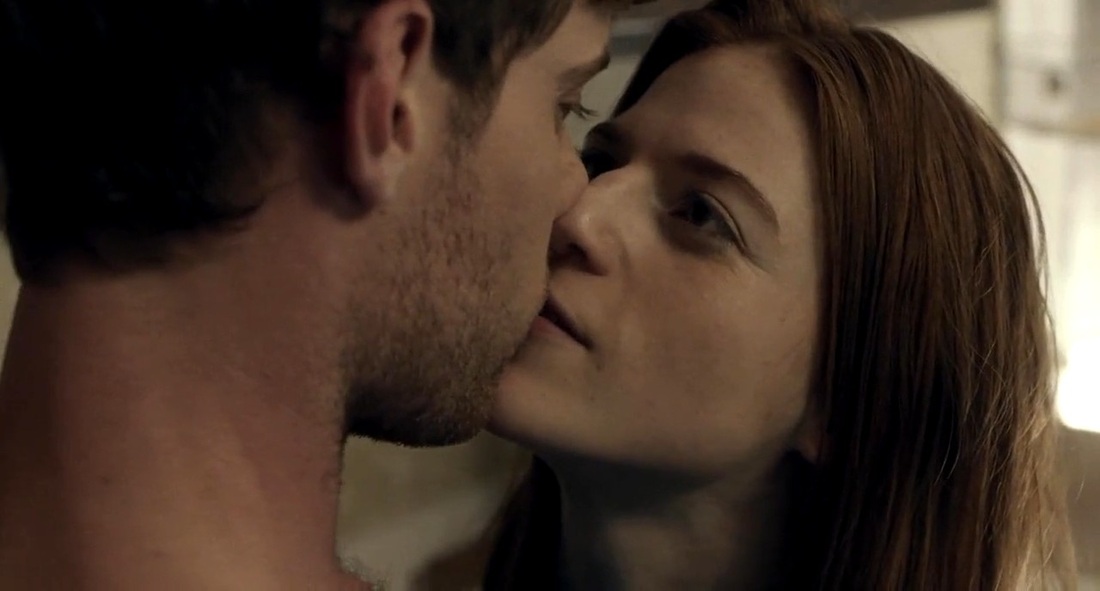
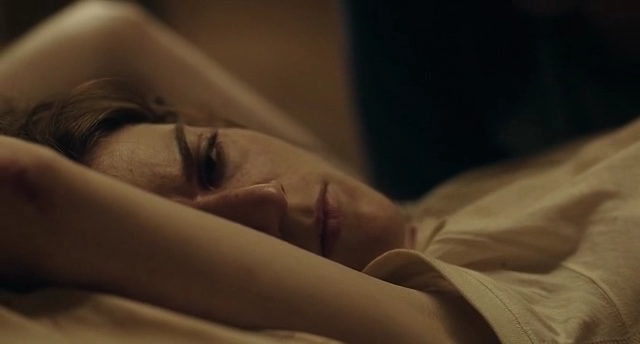
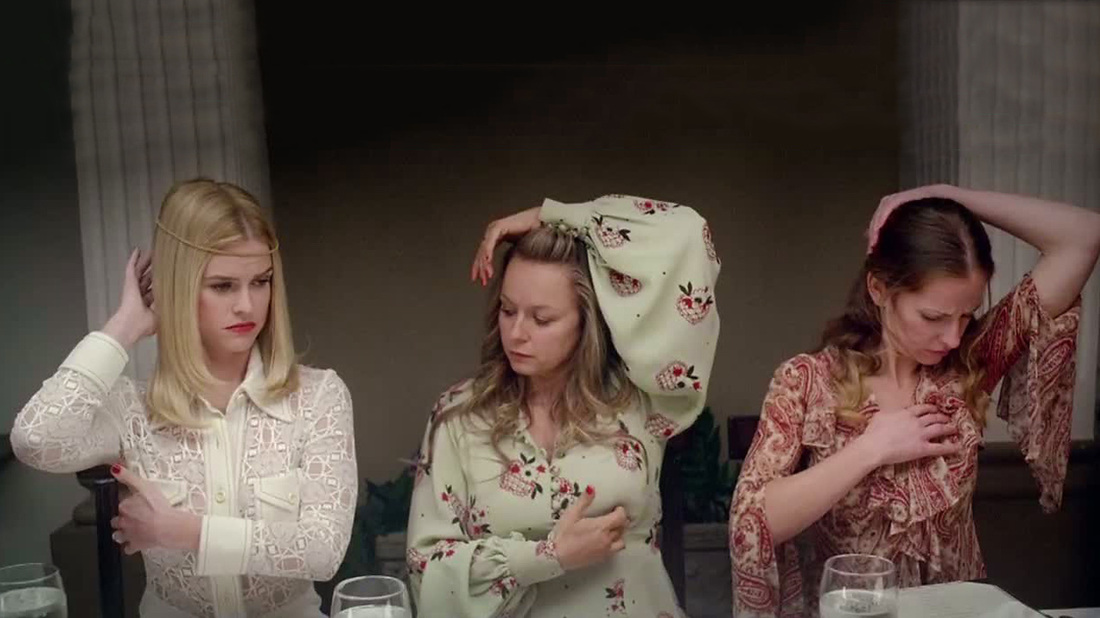
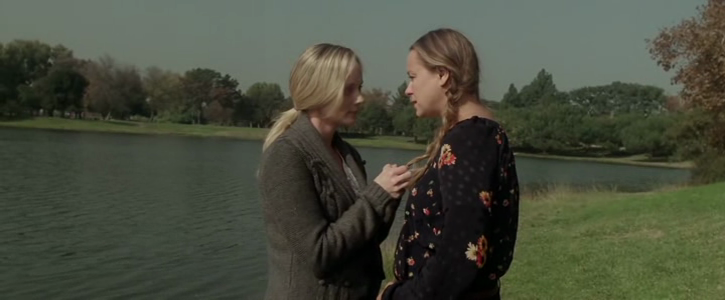
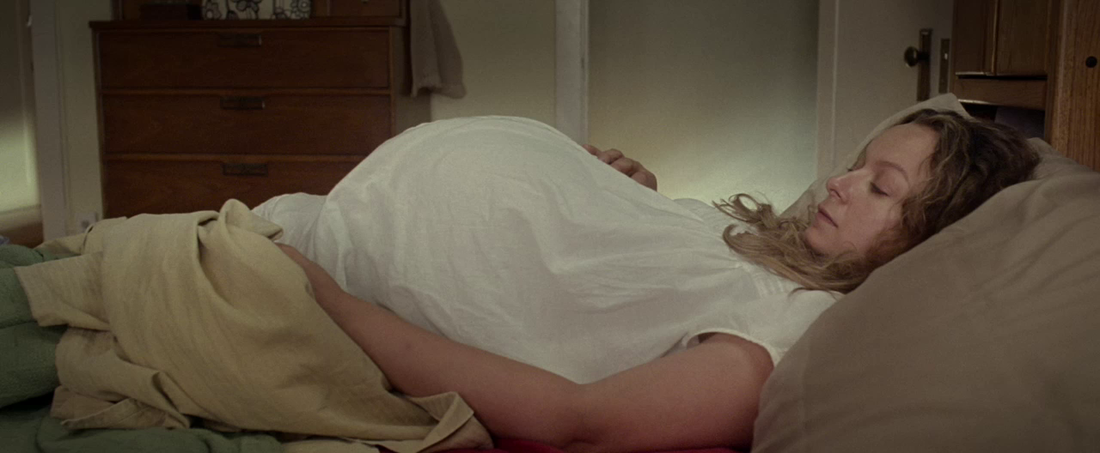
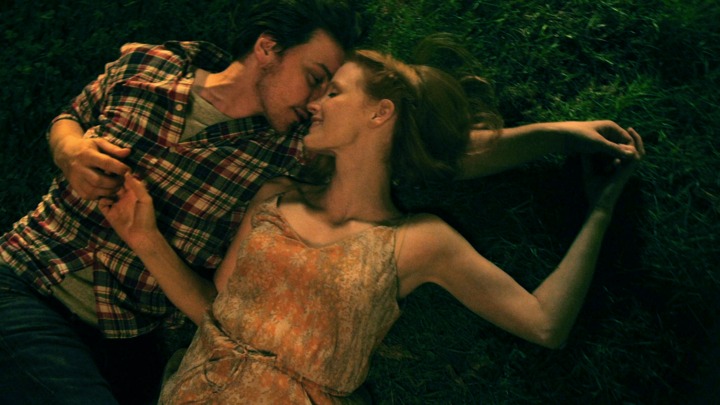
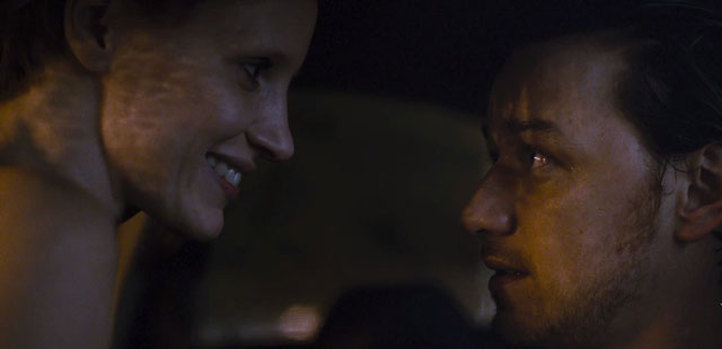
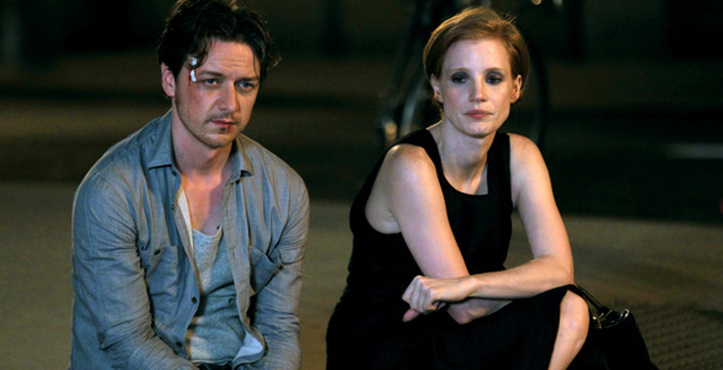
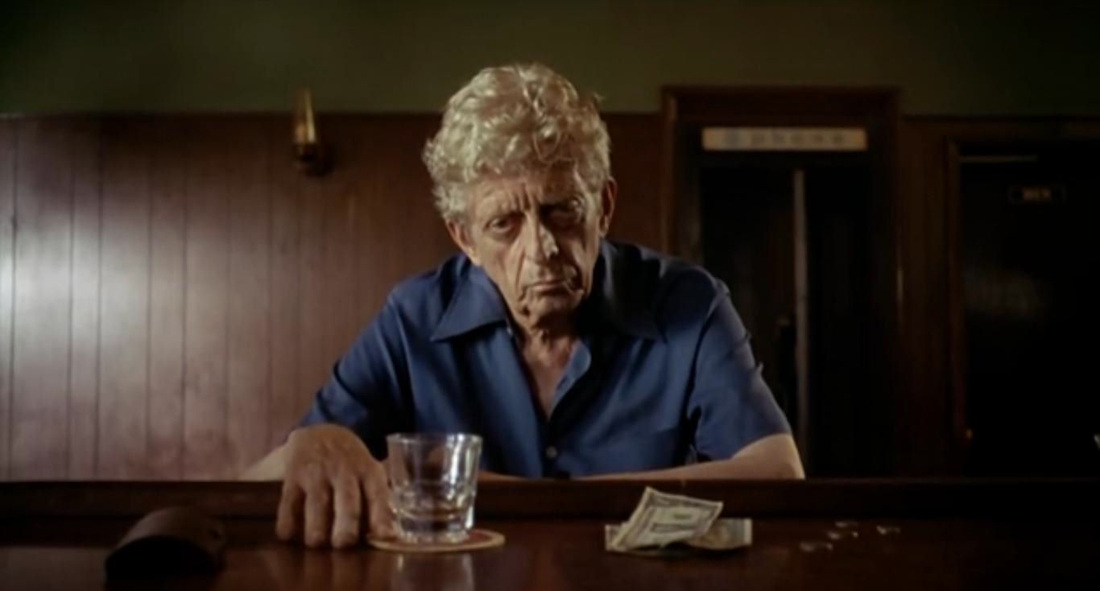
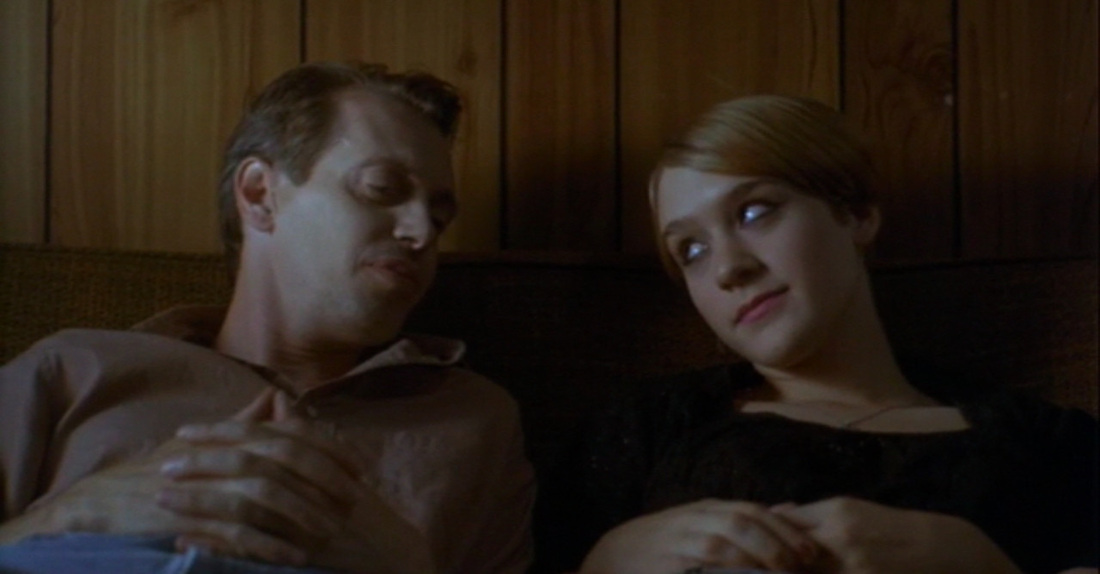
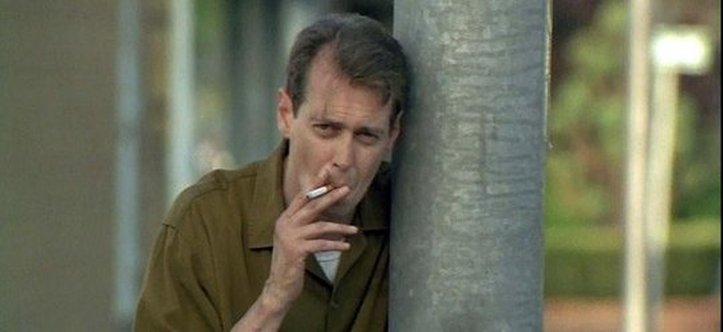

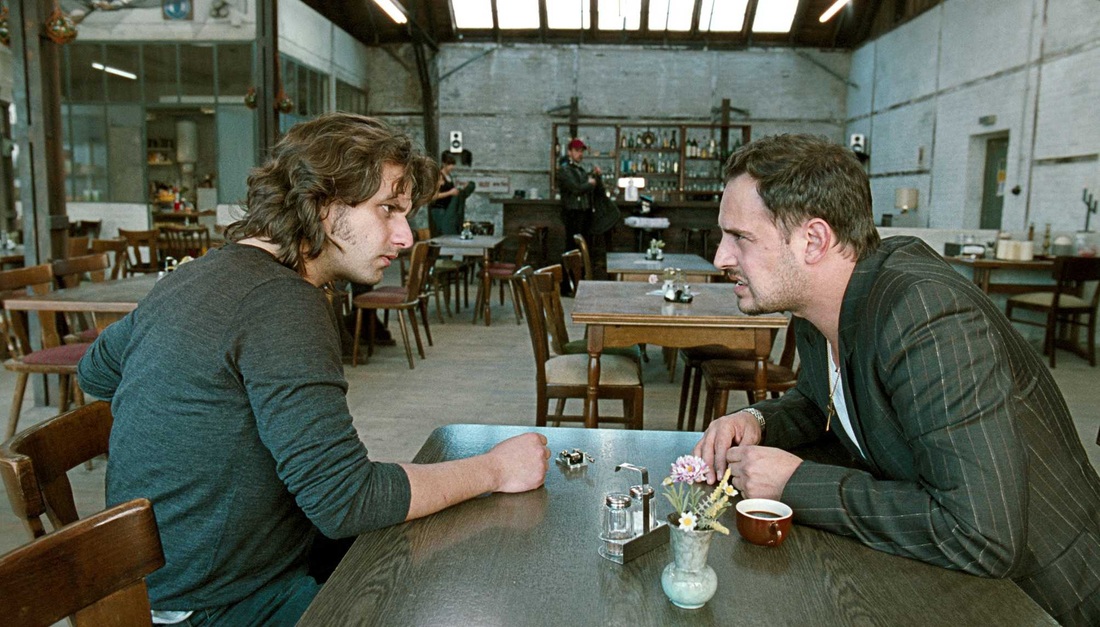
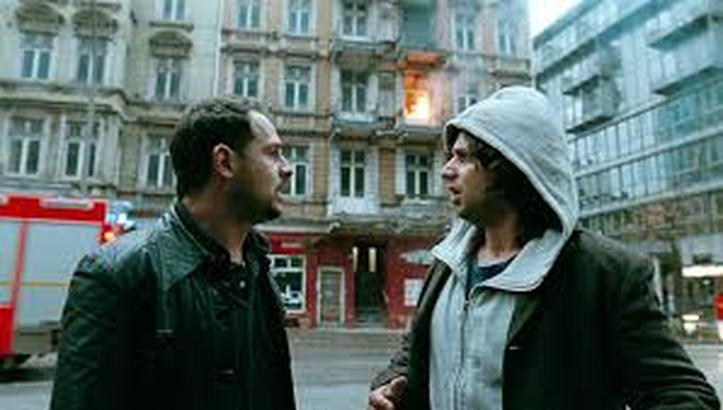

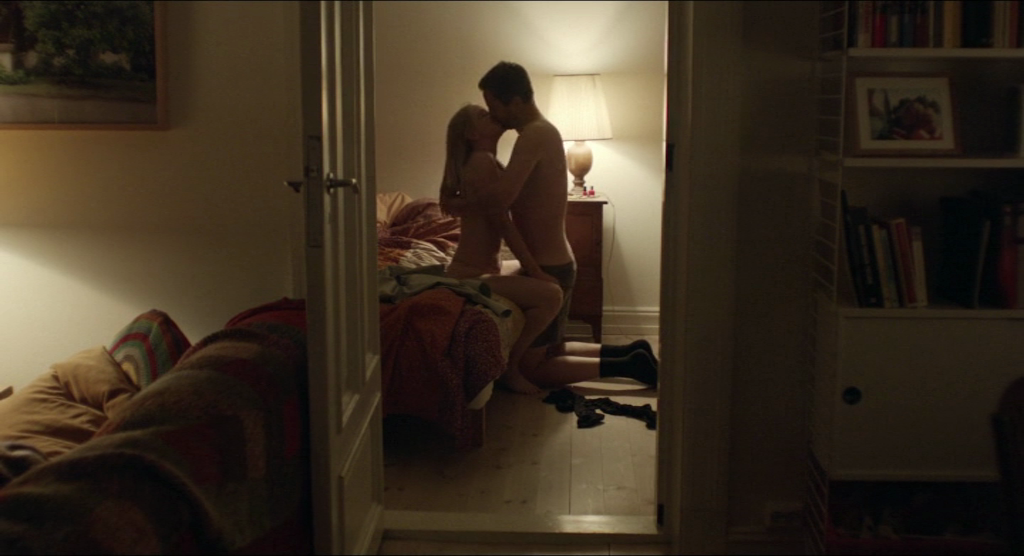
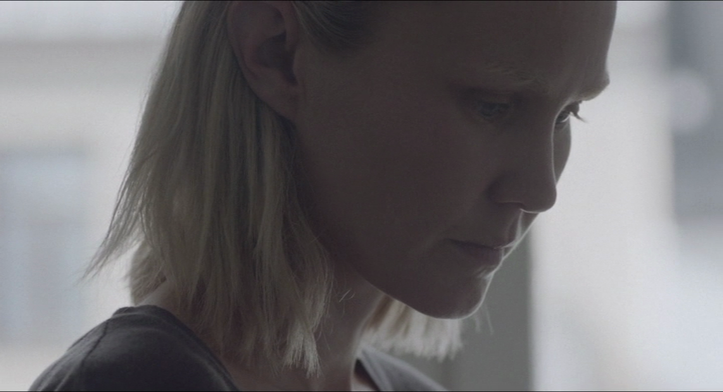
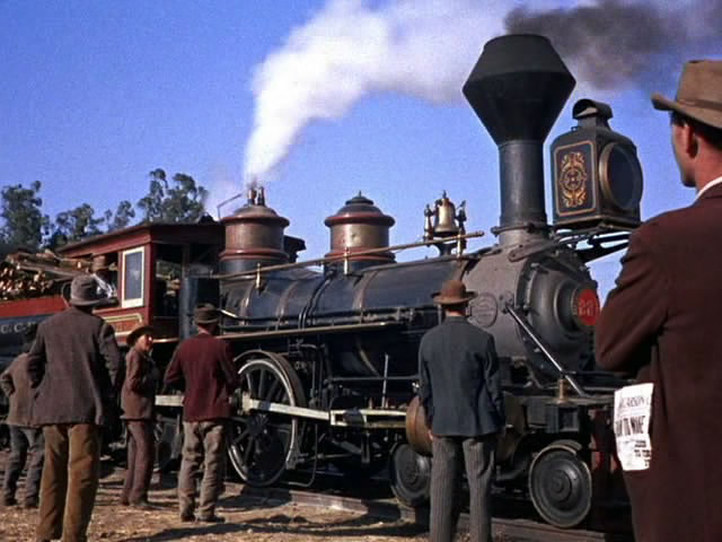
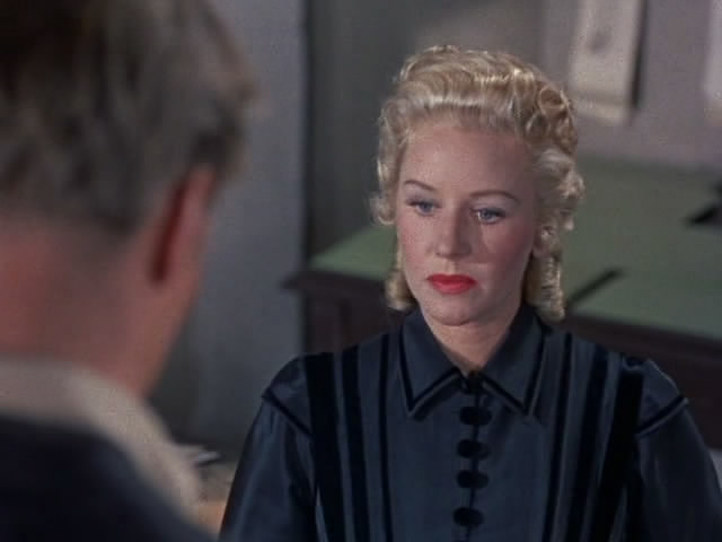
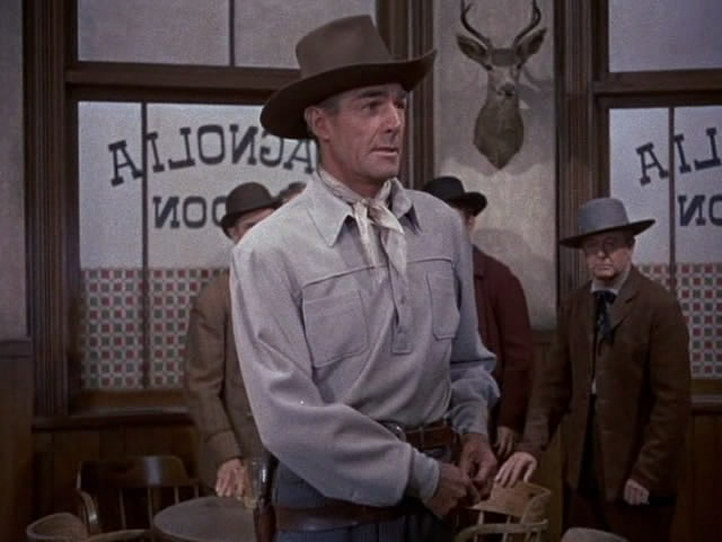
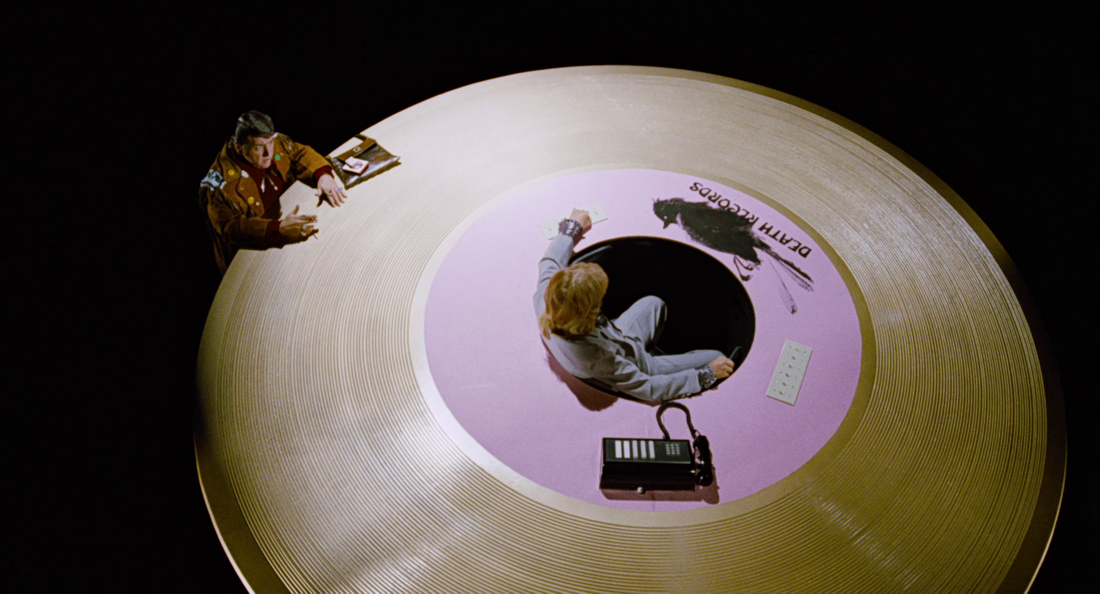
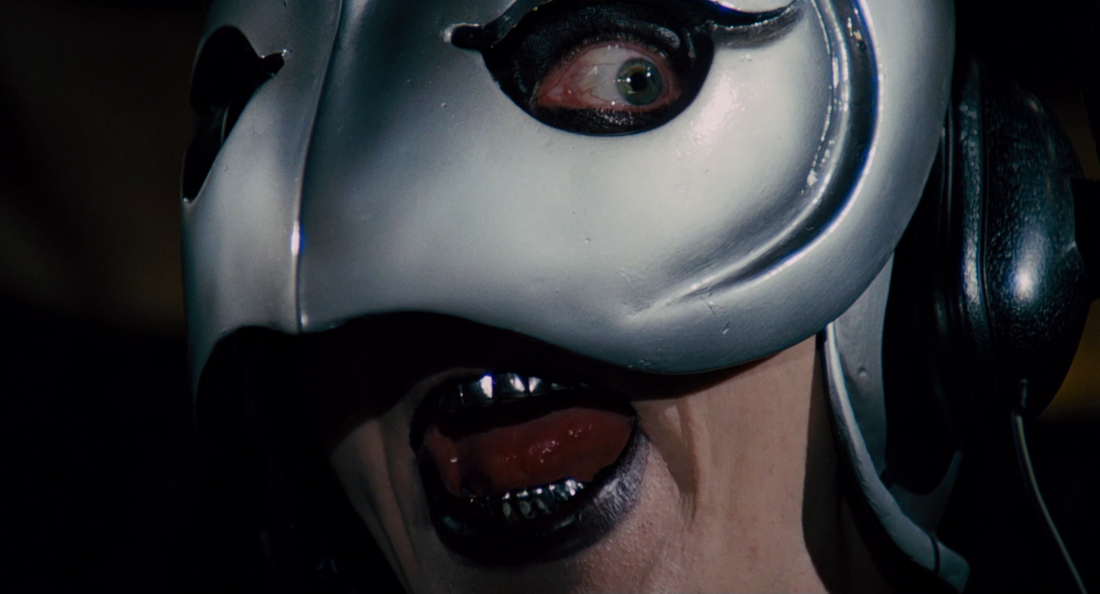
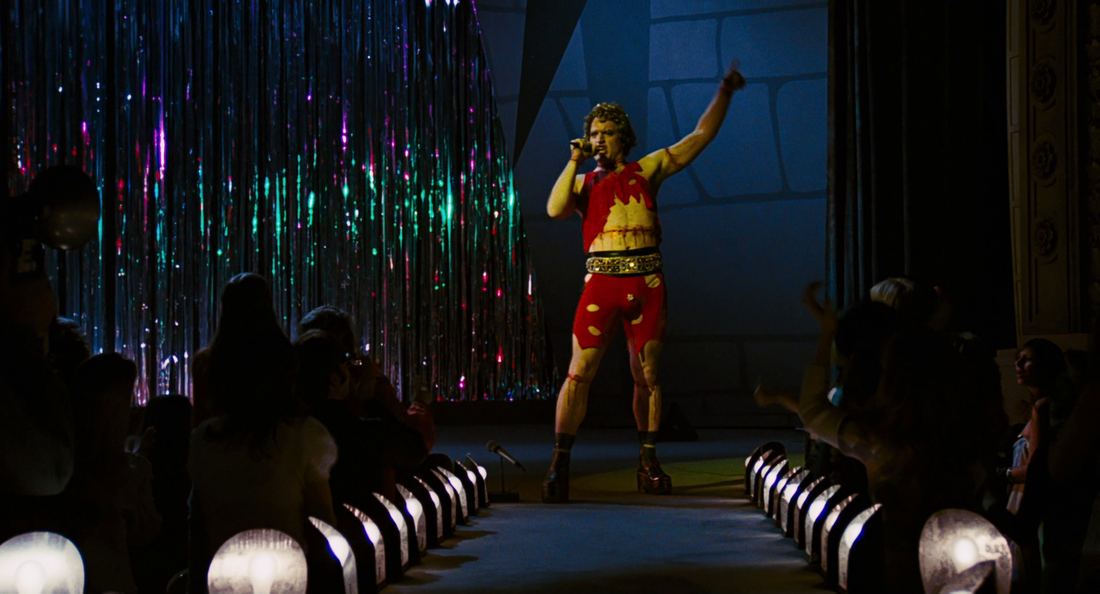
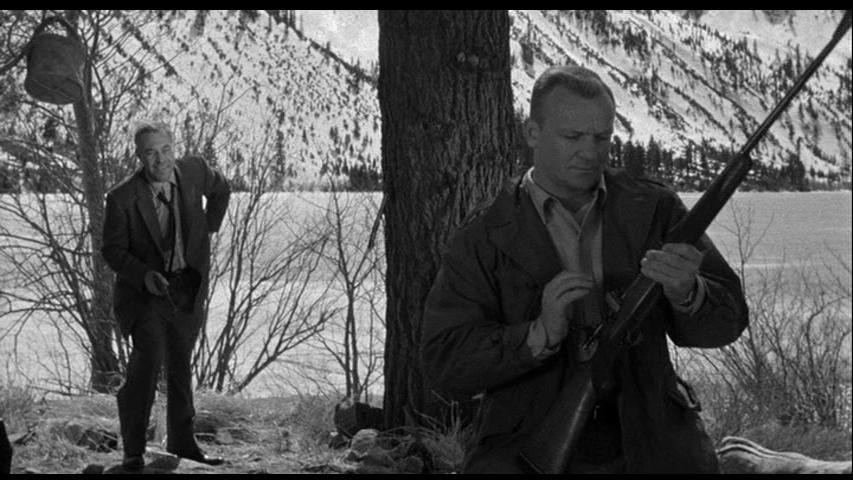
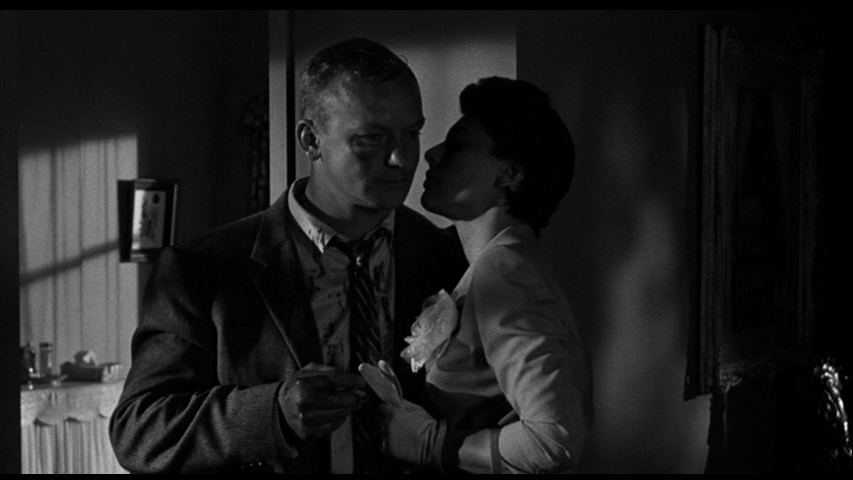
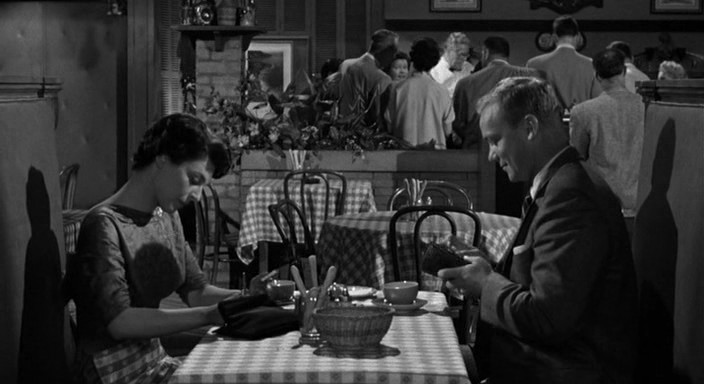
 RSS Feed
RSS Feed
